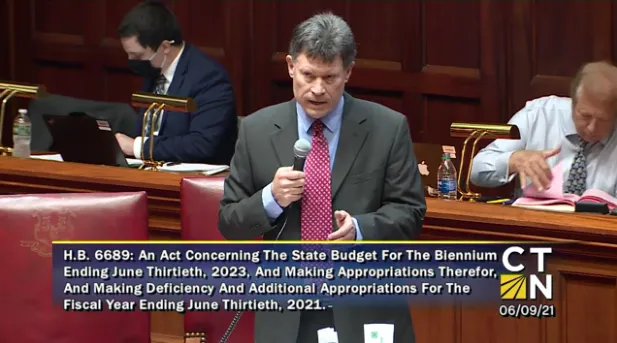State Budget Misses Historic Opportunity to Reduce Inequities

The General Assembly adopted HB 6689, a $46 billion FY 2022-2023 biennium budget, before adjourning the 2021 legislative session before midnight on Wednesday. The plan does not add fairness to the tax code for working class or middle-class taxpayers and relies heavily ($2.332 billion) on one-time federal American Rescue Plan Act (ARPA) funds to fund ongoing line items, leaving significant deficits in the out years. The proposal is under the spending cap by $22.2 million in FY 2022 and $35.7 million in FY 2023. It passed both chambers on a bipartisan basis with votes of 116-31-4 in the House of Representatives and 34-4-1 in the Senate.
This year the Connecticut AFL-CIO joined with other labor unions, community organizations and faith groups to form Recovery For All, a coalition committed to closing opportunity gaps and reducing racial and economic disparities in the state budget by adding progressivity to the tax code and investing in programs and services that build equity. Given the scale of human need created by the pandemic and the deep roots of systemic inequities in Connecticut, the adopted budget misses an historic opportunity to shift tax burdens and significantly invest in the long-term future of working people and their communities.
While the budget passed by the General Assembly maintains, and in some cases expands, service levels, provides some tax relief to low-income families by expanding the Earned Income Tax Credit (EITC) and begins to reverse some of the austerity measures employed in the 2017 bipartisan budget, it does so by relying on more than $2 billion of one-time federal funds, which will create deficits in FY 2024 when the federal dollars run out.
Governor Lamont has called this budget “transformational,” “bold,” and “progressive,” but it closely adheres to the status quo approach that has prevailed for decades. Rather than take bold steps to ensure an equitable, permanent revenue streams, Governor Lamont has relied on gimmicks and failed to meet the moment.
Senator John Fonfara (pictured above), Co-Chair of the Finance, Revenue & Bonding Committee expressed his frustration with the package on the Senate Floor Wednesday. “The murder of George Floyd generated an unprecedented response from many across the state. It did so primarily because of our ability to see Derek Chauvin’s knee on George Floyd’s neck for nine minutes,” Fonfara said. “When our policies fail to address needs in a sustained way, it’s as though...our policies are a knee on the neck of the Black community and other underserved communities of our state. We can do better, and we must do better.”
A summary of the adopted FY 2022-2023 state budget can be found here.
